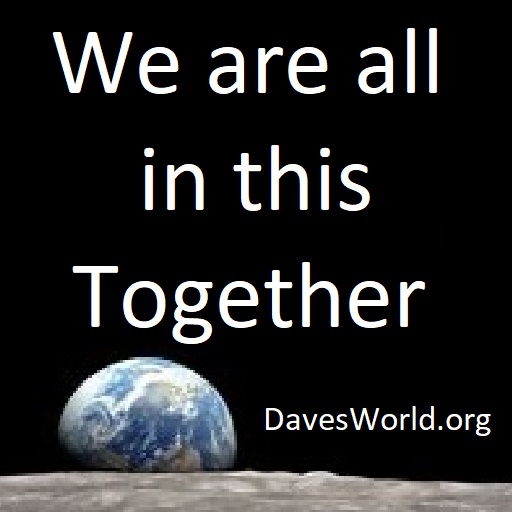“To
change the world, we must be good to those who cannot repay us.”
–
Pope Francis
While Forbes Magazine may say otherwise, I think the wealthiest man on Earth is the Pope. The Catholic Church has amassed wealth steadily since 325 AD when they cut a deal with the most powerful man on Earth, the Roman Emperor, Constantine. The Pope controls the holdings of the Church and has dominance over 1.2 billion Catholics and a strong influence over many others.
How ironic that the Catholic Church has elected a Jesuit to lead them, a man who has not only vowed chastity, but poverty in the service of his God and his religious beliefs.
You can’t help but admire a man whose 265 predecessors lived in splendor in an opulent palace but chooses to bed in a small cell and to eat cafeteria-style with the workers that serve him.
One thing you might notice is that the Pope is happy … genuinely happy most of the time. He has chosen to serve rather than be served. It isn’t his vast wealth that has made Pope Francis happy, it is his choice to be of service to others. Contrast his pinched-faced predecessor, who insisted on protocol and ceremony and condescension; who shunned non-Catholics and even many Catholics who happened to be gay or transgendered or in need of respite from endless childbearing or in some other way less worthy, less deserving of grace, less entitled.
I first discovered this idea of serving others, of finding compassion in empathy, of leaving childish selfishness behind and making ourselves useful and productive and cooperative within the bigger picture, in the book The Art of Happiness written by the Dalai Lama1, another selfless world leader. While the Chinese invasion and occupation of Tibet forced the Fourteenth Dalai Lama into exile, he was not forced into anger or demands for revenge. He calls for rapprochement and understanding instead.
I find these men incredibly charismatic, almost irresistible in their calls for tolerance and mutual understanding. I see this as a spiritual movement which made great strides in the Twentieth Century until it ran into opposition led by Ronald Reagan and the political movement of fear, blame, greed and grandiosity. “No,” this counter movement shouts, “We must not trust. We must not be patient. We must prepare for war so that we can continue to be victorious, the greatest nation on Earth, the world’s superpower.”
We went back to fomenting unrest, bullying and misleading others, to lies and fear and a great deal of dishonesty. Reagan defied Congress in sending arms to a small group of dissidents in Nicaragua who opposed the duly-elected socialist government there. Then he lied about his involvement, letting his lieutenants take the blame. Meanwhile, his promises to America didn’t pan out. His tax cuts for the wealthy allowed them to open sweat shops in Indonesia, India, China, Malaysia, and other places that had no protections for workers or the environment. His deregulation led to monopolies and abuses including the ongoing opiate addiction crisis. The gutting of financial regulation led directly to the Enron disaster, billions in upside-down government-insured home loans, and bankruptcies in many of our pension funds and annuity programs as well as his own state of California. Just about everything he did made extra, unneeded wealth for the already wealthy and hardship for everyone else.
Today, Ronald Reagan is still touted as a paragon of virtue, a beacon of hope as we vote between Presidential candidates that both have serious flaws and are running, not to serve us, but to become famous and powerful.
I am pleased that we have a Pope who lives his beliefs and stays humble and faithful to his order. Maybe, just maybe, we could learn something. We do not need to bully the world. Certainly, our intervention in World War I might have been needed, but the betrayal of Arab allies after the war was a serious crime, a perpetration which was caused by our flawed religious texts coupled with a desire to pass the buck on to someone else, to not have to pay for our excesses2. The bankrupting of Germany because they lost was another serious crime, which we paid for in the next generation.
At least we learned something there and, after the Second World War, we rebuilt our enemies, an act which continues to return dividends for both sides.
We can live in a cooperative world or an competitive world. We actually get to choose. Let’s think long and hard about this choice.
1The Art of Happiness was co-authored by American psychiatrist, Howard Cutler.
2See the small book by retired Marine Corps Major General Smedley Darlington Butler, War is a Racket.
©David N. Dodson, September, 2016, Phoenix, AZ
